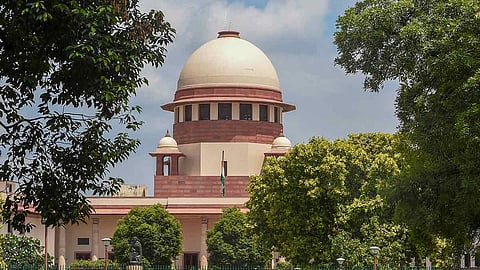

The Supreme Court on Wednesday, April 23, sharply criticised the Kerala High Court for quashing multiple FIRs filed under the Protection of Children from Sexual Offences (POCSO) Act against a computer teacher accused of sexually harassing several female students. Restoring the criminal proceedings, the apex court described the High Court’s approach as “insensitive” and said it effectively amounted to holding a “mini trial.”
A bench comprising Justices Surya Kant and N Kotiswar Singh was hearing petitions filed by the survivors challenging the High Court’s order. The bench slammed the HC, calling its decision a “glaring example of victimisation of the victims.” It noted that the HC had prematurely evaluated the statements made by the survivors during the preliminary stage and concluded that “it is not possible to infer that the said act has been done by the petitioner with any sexual intent.”
We are disappointed with the manner in which the High Court has acted in an insensitive manner, ignoring the fact that respondent No.1 was a teacher and the victims his students,” the Court said.
The Supreme Court also observed that the accused appeared to have influence, pointing out that he allegedly tried to settle the matter with one of the survivors before moving the High Court to quash the FIRs. The bench also expressed concern that initially, only the statement of one survivor — a 19-year-old student — was recorded by the police, and that it was only after judicial intervention that five FIRs were ultimately filed.
According to LiveLaw, the allegations included inappropriate touching in the computer lab, asking students offensive questions about sanitary napkins, and sending obscene images to phone numbers believed to belong to the students, but which turned out to be their parents. After the students reported the misconduct to the school, a preliminary enquiry revealed the presence of women’s magazines and CDs in the computer lab. Though the accused apologised, the misconduct reportedly continued. Following further complaints, he was arrested, and five FIRs were registered after judicial intervention.
The accused argued that the matter in one of the cases had been “settled” with the survivor and sought to quash the FIRs. Despite the filing of a chargesheet and the recording of survivor statements, the High Court dismissed the criminal proceedings, stating there was no evidence of sexual intent.
Disappointed by this ruling, the petitioners appealed to the Supreme Court.
Senior advocate PV Dinesh, representing the petitioners, highlighted the initial inaction by the police, while senior advocate Thomas P Joseph, appearing for the accused, argued that the complaint was delayed and that Section 29 of the POCSO Act—which relates to the presumption of guilt—was not applicable.
Rebuking the High Court’s role, Justice Kant remarked: “The most disturbing factor is that the High Court is virtually running a mini trial. What business do they have to look into the statements, evaluate them and then come to a conclusion? For what purposes trial courts are there then?”
The Supreme Court directed that the victims be treated as protected witnesses and that their statements be recorded at the earliest opportunity. The accused has been barred from contacting or influencing them in any way. The school has been instructed to keep him under suspension during the trial, though it may independently conduct a domestic inquiry.